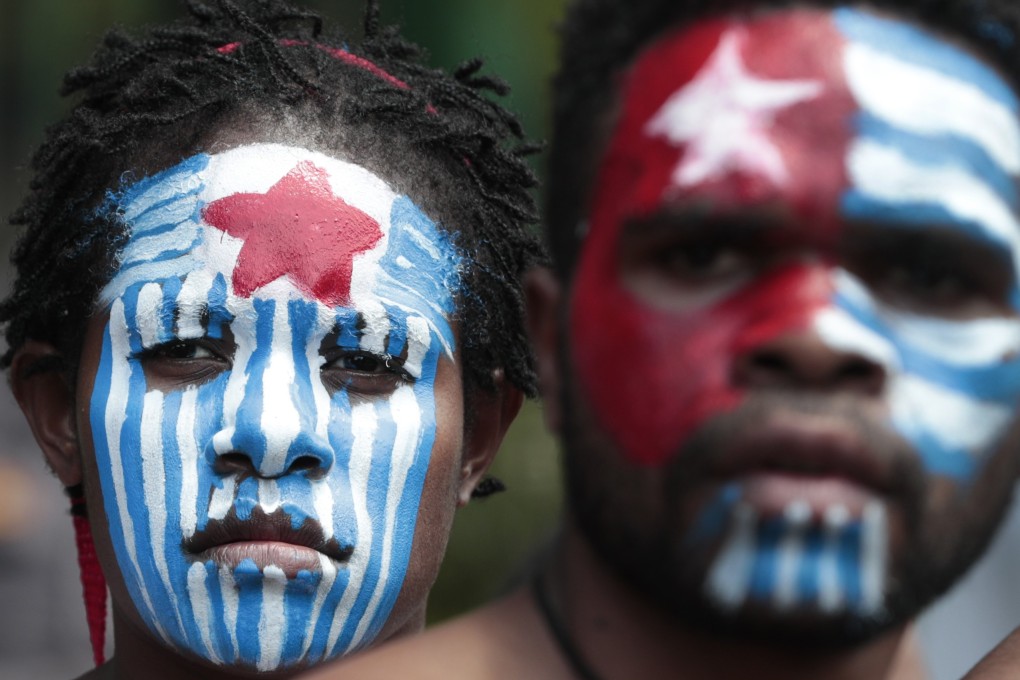Advertisement
Six killed after Indonesian authorities open fire on Papuan protesters
- Thousands of Papuans have been protesting over perceived ethnic discrimination since last week
- About 1,200 police officers have flown to the region which has a heavy military presence due to decades of separatist conflicts
2-MIN READ2-MIN

Indonesian security forces opened fire on Papuan protesters on Wednesday, killing six people who tried to storm a government office in Deiyai region, a local resident and a website citing a separatist group said.
Many were injured in the clash in Indonesia’s easternmost province, said Deiyai resident John Pakage told Reuters by telephone. The website giving the same toll is Suarapapua.com.
In Jakarta, national police spokesman Dedi Prasetyo dismissed reports of protesters being killed as “a provocation”, but said one military personnel was killed and three police officers injured in a clash.
Advertisement
“Security forces are trying to control the security in the area,” he said.
A Papuan news portal, jubi.com, said thousands of people, some carrying bows and arrows, were protesting in Deiyai.
Advertisement
Prasetyo of the police said only information from the Papua police was trustworthy.
Advertisement
Select Voice
Select Speed
1.00x